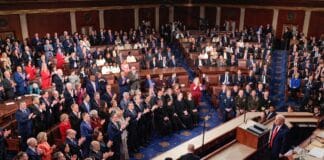Republican lawmakers in the House and Senate have introduced the Unfair Gun Taxes Act, aimed at preventing states from imposing additional excise taxes on firearms and ammunition. The legislation, supported by Reps. Darrell Issa (R-CA), Richard Hudson (R-NC), and Sen. Jim Risch (R-ID), seeks to protect law-abiding gun owners from what they describe as discriminatory and punitive state-level taxes.
Currently, firearm and ammunition manufacturers pay a 10 to 11 percent federal excise tax. These funds support wildlife conservation, public land access, and marksmanship programs across all 50 states. This long-standing federal tax is viewed as a beneficial tool for outdoor sports and conservation efforts.
However, Republican lawmakers and gun rights advocates argue that new state-level excise taxes go beyond conservation. They say states—particularly those with Democrat-led legislatures—are implementing these taxes as “sin taxes,” designed not to support public programs but to fund anti-gun initiatives. These include gun control campaigns and legislation that restricts Second Amendment rights.
Sen. Risch described these state efforts as a direct assault on constitutional liberties. “Blue states that implement an excessive excise tax to fund gun control initiatives are exploiting the Second Amendment,” Risch said. “The Freedom from Unfair Gun Taxes Act ensures states do not place a significant financial burden on law-abiding gun owners to advance their anti-Second Amendment agenda.”
The National Shooting Sports Foundation (NSSF) supports the bill and highlighted the danger of allowing states to redirect tax revenue from lawful firearms sales toward policies aimed at restricting those very sales. The group emphasized that lawful gun owners are being unfairly targeted, even as they already contribute significantly through the federal excise tax.
If passed, the Unfair Gun Taxes Act would prevent states from enacting additional excise taxes on guns and ammunition, reinforcing federal protections and shielding citizens from excessive financial burdens linked to the exercise of constitutional rights.





